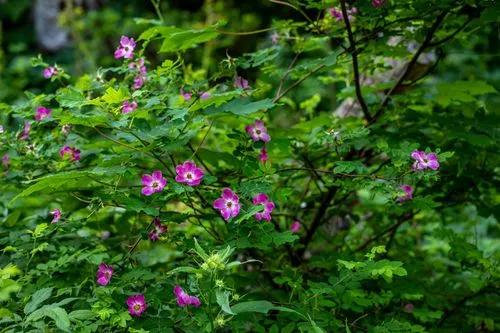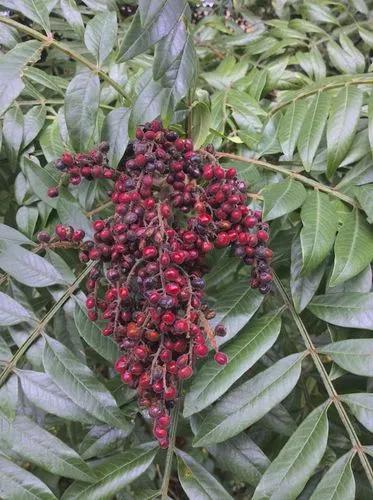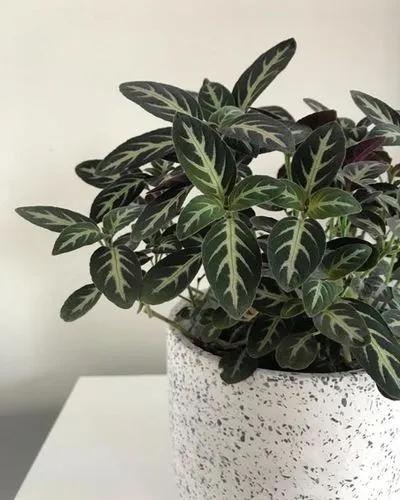Allium tuberosum is a species of onion native to southwestern parts of the Chinese province of Shanxi, and cultivated and naturalized elsewhere in Asia and around the world. The plant looks like an onion chive but tastes more like garlic.
Garlic chive Care
Allium tuberosum



Its scientific name of Allium tuberosum is indicative of its oniony roots and falls among the family Liliaceae. Unlike onions or other types of garlic, however, the fibrous bulb is not edible but is grown rather for its flowers and stems. It is easy to differentiate between onion chives and garlic chives. Garlic chives have a flat, grass-like leaf, not a hollow one as do onion chives. They grow between 12 to 15 inches tall. Garlic chives make a lovely flower in a border or container plant, and work well in the herb garden. They can be planted along a path or as a dense ground cover too. The small, star-shaped flowers are usually cream colored and born on sturdy stems in June. The flowers can be eaten or dried and made into floral arrangements. The seed heads are also often used in everlasting arrangements or can be allowed to remain and drop seeds for continual reseeding.
How to Care for the Plant

Water

Although garlic chives are relatively drought tolerant, regular irrigation results in healthier growth and larger plants. The plants benefit from deep watering to keep the roots moist. Wait a few days between irrigating sessions, and allow the top of the soil to become slightly dry. Stop watering and let the soil dry after blooming stops and the foliage begins to turn yellow.

Fertilizer

Although garlic chives are light feeders that thrive with little fertilizer, a side dressing of a granular, high-nitrogen fertilizer with a ratio such as 21-0-0 is beneficial. Apply the fertilizer in late spring and midsummer. Sprinkle the fertilizer evenly on the soil around the plants at a rate of about 1 teaspoon for every 1 foot of garden space. Water deeply to distribute the fertilizer around the roots.

Sunlight

The plant prefers full sun to partial afternoon shade.

Soil

Plant in a rich, well-draining soil with a pH of 6.0. Add compost or manure to improve the soil.

Temperature

These plants prefer cool air temperatures between 40 and 85°F, and they can grow through winter if the soil temperature remains above freezing.

Popularity

2,432 people already have this plant 237 people have added this plant to their wishlists
Discover more plants with the list below
Popular articles






